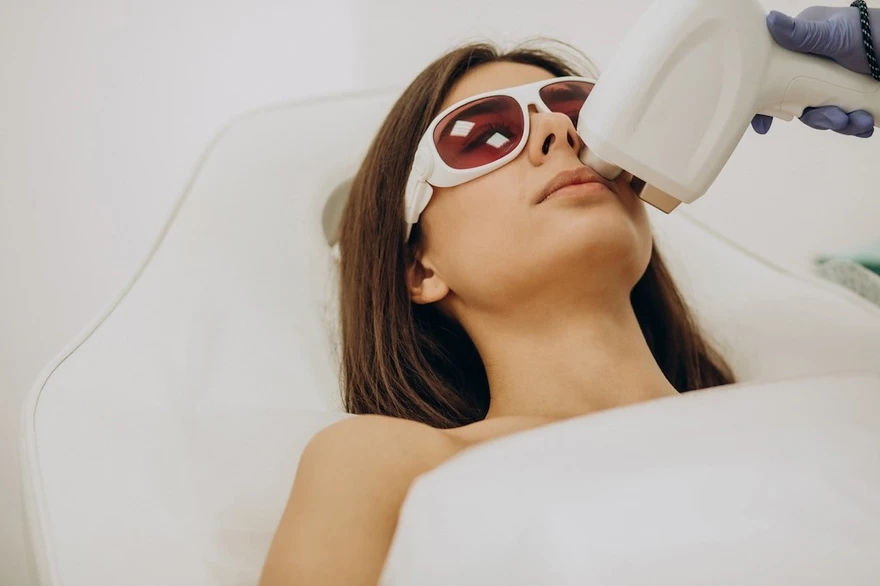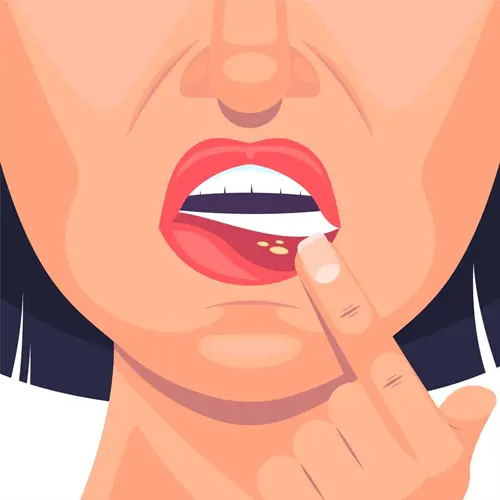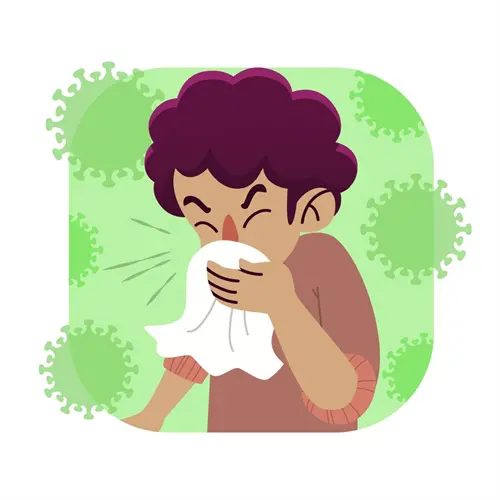Preventive Healthcare
Hirsutism: Things You Need to Know
1240 Views
0

Introduction
Dealing with hirsutism can be difficult, both physically and emotionally. As a woman, if you notice excessive hair growth in areas where there is typically minimal or no hair growth, you may be suffering from hirsutism.
Facial hair growth in women and excess body hair growth in women can make them feel uncomfortable. However, there is no need to worry because in this comprehensive guide, we will help you learn what hirsutism is, its symptoms, possible causes, diagnosis, treatment options and prevention measures.
What Is Hirsutism?
Hirsutism is the excessive growth of coarse, dark hair in areas where women normally have absence or minimal hair growth. These areas commonly include the face, chest, back and abdomen. While some degree of hair growth in these regions is normal, hirsutism involves more extensive hair growth.
What Are The Symptoms Of Hirsutism?
The primary hirsutism symptom is the appearance of coarse, dark hair on the face, chest, back and abdomen.
The primary hirsutism symptom may be accompanied by other secondary symptoms such as acne, irregular periods, decreased breast size, increased muscle development, enlarged clitoris, and a deepened voice.
What Is The Cause Of Hirsutism In Women?
High levels of androgens such as testosterone can stimulate hair follicles in certain areas, leading to excessive, coarse hair growth a characteristic of hirsutism. Androgens play a key role in the regulation of hair growth patterns, and an imbalance can contribute to the development of this state.
Here are a few possible hirsutism causes that can cause high levels of androgens in your body:
- Polycystic Ovary Syndrome (PCOS): PCOS causes high levels of male hormones as small cysts or fluid-filled sacs form in the ovaries. Due to this hormonal imbalance, symptoms such as hirsutism, irregular periods and acne may occur.
- Cushing's Syndrome: Exposure to high levels of cortisol and stress hormones can cause Cushing's syndrome. This condition increases androgen production and can cause hirsutism.
- Tumours In Adrenal Glands Or Ovaries: Tumors in the adrenal glands (the glands that produce androgens) within the ovaries can interfere with hormone production, causing elevated androgen levels and subsequent hirsutism.
- Medications: Certain medications can alter hormone levels, resulting in unwanted hair growth. For example, if you are taking medications that contain hormones such as anabolic steroids, hair growth stimulants such as minoxidil (Rogaine), and danazol (Danocrine), which is used to treat conditions such as endometriosis (uterine lining grows outside the womb).
- High Insulin Levels: Increased insulin levels can stimulate the ovaries to produce androgens, causing hirsutism. This link between insulin and androgen production can occur in conditions such as insulin resistance.
- Congenital adrenal hyperplasia: Congenital adrenal hyperplasia is a condition which is present since birth due to which is an enzyme deficiency affecting the adrenal glands ability to produce cortisol and aldosterone. As a result, your body produces excess androgens, leading to symptoms such as hirsutism.
- Menopause: Hormonal changes during menopause can affect your androgen levels, potentially leading to hirsutism in some women.
Does Hirsutism Mean You Have PCOS?
Although PCOS is listed under hirsutism causes, this does not necessarily mean that they have PCOS when they experience hirsutism. Whereas, PCOS is one of the most common hirsutism causes and is characterized by hormonal imbalances, ovarian cysts and irregular menstrual cycles.
How Is Hirsutism Diagnosed?
Diagnosis of hirsutism usually involves a thorough review of your medical history, physical examination and possible laboratory tests to evaluate hormone levels and rule out the underlying medical conditions. Your healthcare provider may also evaluate your menstrual history and symptoms which are associated with hirsutism.
Once diagnosed with hirsutism, your doctor may use the Ferriman-Gallwey score, a tool that evaluates the severity of your hirsutism by visually assessing hair growth in specific areas of your body, such as your face, chest, back, or abdomen. Scores range from 0 to 4 for each location, with lower scores indicating mild hirsutism and higher scores indicating more severe cases. This assessment helps make treatment decisions and track progress over time.
What Are The Risk Factors Of Hirsutism?
Several factors can increase your risk of developing hirsutism, including family history, certain medical conditions such as PCOS, and obesity, and if you are taking medications that can cause hirsutism.
What Tests Will Be Done to Diagnose Hirsutism?
Your healthcare provider may help you to rule out this condition using the following diagnostic tests:
- Blood test to check your hormone levels.
- Ultrasound to examine your ovaries and uterus.
- X-ray to evaluate your ovaries and adrenal glands to rule out other conditions.
What Are The Treatment Options For Hirsutism?
Hirsutism treatment aims to manage the symptoms and address the underlying causes.
Hirsutism treatment options may include:
- Weight loss: Losing weight, if overweight or obese, can help in improving hormonal balance and reduce excessive hair growth.
- Medications: Your health care provider may prescribe medicines tailored to your specific needs.
Hirsutism medications may include:
-
- Oral Contraceptives: Birth control pills can help to regulate to the hormone levels, particularly androgens, which can contribute to hirsutism.
- Anti-Androgens: These medications can block the effects of androgens (male hormones) on your body, which can help to reduce hair growth.
- Low-Dose Steroids: These medications are prescribed if you have overactive adrenal glands which produces excess adrenaline and cortisol.
- Topical Creams: Prescription creams containing eflornithine which is can slow down the growth of facial hair when applied directly to the skin.
- Hair Removal Options: Several hair removal methods can help manage excessive hair growth temporarily.
These include:
-
- Electrolysis: A procedure that uses a tiny needle to destroy hair follicles with an electrical current, providing longer-lasting results.
- Laser Hair Removal: Using laser energy to target and destroy hair follicles, leading to a reduced hair growth over time.
- Home Remedies: Although not as effective as medical treatments, some of these hirsutism home remedies may be helpful in treating hirsutism.
These include:
-
- Threading: By using a twisted cotton thread to remove hair at the follicle level.
- Shaving: By using a razor or electric shaver to remove hair quickly and easily.
- Bleaching: Lightening the colour of hair to make it less noticeable. Be aware of bleaching as hirsutism home remedies as bleaching products can cause skin irritation if you leave them too long on your skin.
- Waxing: Applying warm wax to the skin and pull it off to remove hair from the root.
It is important to discuss treatment options with your healthcare provider to determine the best course of action for you. They can provide personalised recommendations which is based on your medical history, symptoms, and treatment goals.
How To Prevent Hirsutism?
While it is not possible to completely prevent hirsutism, maintaining a healthy lifestyle, managing any underlying medical conditions, and avoiding medications that may worsen excess hair growth can help reduce your risk.
How Do You Get Rid Of Hirsutism?
Treating hirsutism requires a comprehensive approach that includes medical treatments, weight loss, and hair removal methods. It is essential to work closely with your healthcare provider so that they help develop a personalized treatment plan that meets your specific needs and concerns.
Conclusion
Hirsutism can affect your appearance and as well as your well-being. Understanding the symptoms, causes and treatments will allow you to manage it effectively. Seek help from a healthcare professional to explore better treatment options. With proper care, you can regain your confidence. Choose Metropolis Diagnostic Labs for accurate tests and convenient in-house blood sample collection. Visit our informative blogs for valuable insights on managing hirsutism and other health concerns.























 WhatsApp
WhatsApp